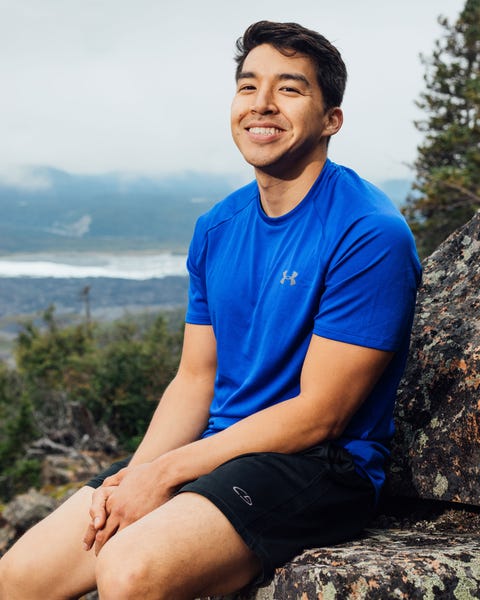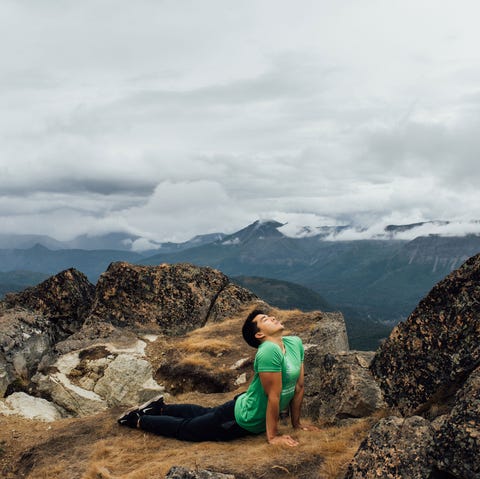About 16,000 years ago, humans crossed the Bering Land Bridge from Siberia and arrived in Alaska. The ones who stayed are the ancestors of today’s Alaskan Natives—Inuit, Yupik, Dena’ina, and others. “In the winter months, they’d hone their personal fitness by training and playing games that built the skills necessary to live in the harsh environment,” says Kyle Khaayák’w Worl, 28, who lives in Juneau.
There were competitions like the four-man carry, in which a man would walk as far as possible with four other men hanging off him, simulating lugging home four seals. Or the knuckle hop, hopping for distance on your knuckles in the pushup position, based on a hunting technique mimicking the motion of a seal hopping on ice in order to sneak up on it. Part of the challenge was pain tolerance—people who finished did so with exposed knucklebones.

Josh Corbett
Today, Worl is carrying on those customs at the World Eskimo-Indian Olympics, an event originated in 1961 and held every July in Fairbanks, at which more than 200 Native athletes compete in 20 games of their elders. Worl’s uncle and grandfather participated in the Games; his dad, sister, and younger brother all currently compete. In high school, Worl began taking part in events like the one-foot-high kick, a test of power, agility, and balance in which athletes jump off one leg, use that leg to kick a ball hung in the air, and land back on the kicking leg. “High kicks were used as signals of a successful or unsuccessful hunt,” says Worl (left). “The Arctic is mostly flat and you could see someone in the distance do a high kick.” He won the event in 2018 with a 100-inch kick.

Josh Corbett
Worl trains for the Games year-round—six workouts a week that build explosive strength, flexibility, and balance. He does up to 400 pushups a day on his knuckles
in the month before the event. He also coaches a Native Youth Olympics high school team in Juneau, passing on the tradition to the younger generation. “I developed an appreciation for my ancestors and Native culture through the Games. They are a celebration of our cultural heritage and reflection of where our people came from,” says Worl. “They show we needed to push our limits and work together to survive. We can apply these lessons to our communities today.”
Source: Read Full Article
